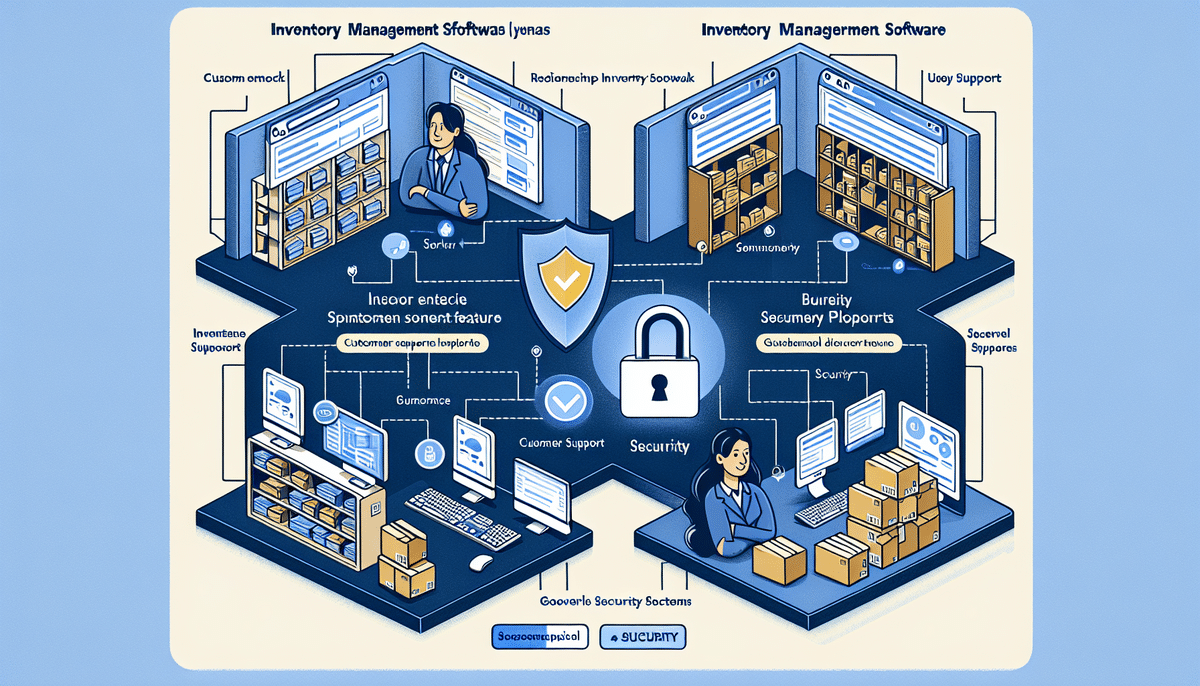Cin7 vs Skubana: Comprehensive Inventory Management Solutions for E-commerce
E-commerce has seen tremendous growth in recent years, making efficient and swift inventory management a critical concern for businesses of all sizes. In this article, we compare two popular inventory management systems: Cin7 and Skubana.
Overview of Cin7 and Skubana
Cin7 and Skubana are cloud-based inventory management systems designed to meet the needs of e-commerce businesses. They offer a wide range of features, including inventory tracking, order management, analytics, and more. Both platforms aim to streamline and automate various tasks associated with inventory management and sales operations, enabling businesses to focus more on growth and profitability.
Key Features
While both Cin7 and Skubana offer robust features, each has its unique strengths:
Cin7
- Multi-location inventory management
- Order management
- Warehouse management
- Automated B2B ordering
- Integrated Point of Sale (POS)
- Advanced reporting and analytics
- Customizable pricing rules
- EDI and API integration
Skubana
- Order management and fulfillment
- Multi-channel inventory management
- Automated reordering and purchasing
- Analytics and reporting
- Profitability tracking
- Integration with over 35 marketplaces, shopping carts, and shipping carriers
- Order splitting and combining
- POS integration
Features Comparison
Inventory Management
Both Cin7 and Skubana offer multi-location inventory management, enabling businesses to track inventory across multiple warehouses and locations. Cin7 provides more comprehensive warehouse management capabilities, including inventory transfers, receipts, stocktakes, and task management. On the other hand, Skubana offers advanced forecasting and demand planning functions, which assist businesses in automatically restocking inventory based on sales history.
Order Management and Fulfillment
Cin7 focuses more on B2B ordering, providing advanced reporting and analytics functionalities. In contrast, Skubana is geared towards multi-channel sales, allowing businesses to process orders from multiple marketplaces and shopping carts, as well as split and combine orders for shipping from various locations. Additionally, Skubana offers real-time tracking and alerts, enabling businesses to swiftly address shipping issues and keep customers informed about their order status.
Integrations and Customization
Both systems support API and EDI integrations, enhancing their customizability and allowing integration with other enterprise systems. Cin7 also features an integrated POS system. Skubana excels with over 35 marketplace and shopping cart integrations, as well as support for major shipping carriers like UPS, FedEx, and USPS.
Pricing Comparison
Cin7 and Skubana employ different pricing strategies:
Cin7 Pricing
- Monthly subscription fee based on the number of users and locations
- Starting at approximately $299/month
- Additional fees for advanced features like B2B ordering and EDI integrations
Skubana Pricing
- Pricing based on the number of orders processed per month
- Starting at around $999/month
- No extra charges for features or integrations
Cin7's pricing model may offer more flexibility for businesses with varying needs, whereas Skubana's flat fee structure can be more predictable and easier to budget for larger order volumes.
Pros and Cons
Pros and Cons of Using Cin7
Pros:
- Comprehensive warehouse management
- Automated B2B ordering
- Integrated POS system
- Customizable pricing rules
- API and EDI integrations
Cons:
- No phone support options
- User interface could be more intuitive
- Limited support for shipping carriers beyond major providers
Pros and Cons of Using Skubana
Pros:
- Multi-channel inventory management
- Sophisticated forecasting and demand planning
- Real-time tracking and alerts
- Integration with over 35 marketplaces and shopping carts
- API and EDI integrations
Cons:
- Higher pricing model
- No support for multiple currencies
- User interface could be more intuitive
User Reviews and Feedback
Both Cin7 and Skubana have received mixed reviews from users. Cin7 users generally appreciate its comprehensive warehouse management and B2B ordering features but sometimes criticize its user interface and the lack of phone support. In contrast, Skubana users praise its multi-channel inventory management and forecasting tools but express concerns about its higher pricing and absence of support for multiple currencies.
Integration Capabilities
Skubana integrates with over 35 marketplaces and shopping carts, making it a versatile choice for businesses looking to sell across multiple platforms. In comparison, Cin7 integrates with fewer marketplaces but offers robust EDI and API integrations, allowing for seamless connectivity with other enterprise systems.
Customer Support
Cin7 provides support via email and live chat but does not offer phone support. Conversely, Skubana offers phone, email, and chat support. Both systems also provide comprehensive online documentation, webinars, and training materials to assist users in navigating their platforms effectively.
Choosing the Right Solution for Your Business
The decision between Cin7 and Skubana should be based on your specific business needs and priorities:
- Cin7 is ideal for businesses that require comprehensive warehouse management and B2B ordering capabilities.
- Skubana is better suited for businesses focused on multi-channel sales and require sophisticated forecasting and demand planning tools.
Additionally, consider the pricing structures and integration capabilities of each system to determine which aligns best with your business's size, order volume, and operational requirements.
Conclusion
Both Cin7 and Skubana offer robust inventory management features tailored to different types of e-commerce businesses. Cin7 excels in comprehensive warehouse management, making it suitable for larger businesses with complex inventory needs. Meanwhile, Skubana stands out with its multi-channel integrations and advanced forecasting capabilities, making it an excellent choice for businesses operating across various sales platforms.
Ultimately, the best choice depends on your specific business requirements, budget, and the features that are most critical to your operations. Carefully evaluate both systems against your needs to make an informed decision.






















